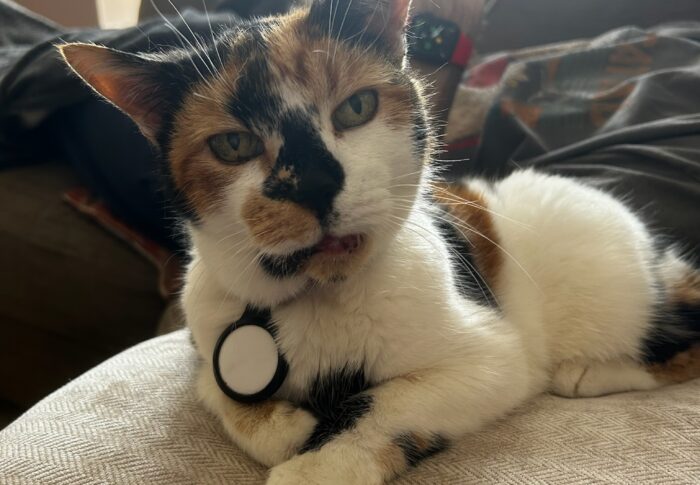
Processing Grief And Loss – Part 1
Today, I’m going to talk about grief and loss. If you read my recent piece about the death of my gorgeous old man, my cat Saxon, you’ll know how devastated I was. You may even be shocked when I tell you it’s the most intense grief I’ve ever felt. Yes, even though I have lost my father and four of my six grandparents (2 were step-grandparents, but my mum married my stepdad when I was five).
The fact is, though, none of them was a daily part of my life. My relationship with my Dad had been problematic at best, and it was only a few years before he died that we really became close. I loved my grandparents, but I only saw them sporadically.
Saxon was always there. Even when he was asleep on the couch or on the grass outside, my heart was full of love for him. I said good morning to him every day and scratched his little noggin. I adored the little chirrups of excitement he made as I got his dinner ready. He was a deeply loved member of my family.
Bereavement
Let’s start by defining what bereavement is. According to the mental health charity, Mind, bereavement is:
“Bereavement is the experience of losing someone important to us. It is characterised by grief, which is the process and the range of emotions we go through as we gradually adjust to the loss.”
Losing someone important to us could be a family member, friend, spouse or pet; the pain and sense of loss are the same.

What Is Grief?
This is the definition of grief “Grief is a strong, sometimes overwhelming emotion for people, regardless of whether their sadness stems from the loss of a loved one or from a terminal diagnosis they or someone they love have received.”
I think that’s a pretty good description. The grief and loss I feel at Saxon’s absence is overwhelming. I miss him every minute and feel sadness like a stab to the heart every time I remember he’s gone.
Is Grief The Same For Everyone?
I would say no. Of course, you can’t quantify a feeling, but I believe that the way everyone feels following a loss is unique to them, as is the way they process it. That doesn’t mean there aren’t types of grief common to everyone.
Anticipatory Grief
This type of grief starts when you know you or a loved one is going to die. I experienced this with Saxon, but only for 24 hours. For some, this stage can go on for months or even years. I was lucky this phase was short and that my grief was not clouded with guilt. I knew I’d given Saxon a very happy life, and he was telling us clearly he was ready to go. Some people, though, feel guilt about things they have done and not done for their loved ones or even items not checked off their bucket lists.
Chronic Or Prolonged Grief
Most of us have met someone who sadly has experienced this type of grief. In my experience, it often happens following the loss of a child. Generally, the loss of a spouse or sibling, while heartbreaking, is an expected part of life. After a while, the intense grief recedes. The ache for the loved one is still there, but the person slowly begins to function again.
It is in no way normal to outlive your child. That’s why it’s understandable some people’s grief does not recede. It stays intense and immensely painful for a long time. Please note I am not saying this only happens with the loss of a child; those are simply the cases I’ve seen.

Normal Grief
Not much to be said here! It’s the usual grief following the loss of someone you love. It’s the grief and loss I feel since losing Saxon.
Absent Grief
Also called denial! The person shows no sign of grief because they don’t appear to accept that the loss has occurred. If the death was sudden, this may be a protective mechanism in the brain. However, if it goes on long term, then some form of intervention may be needed.
Exaggerated Grief
This is the flip side to absent grief. Exaggerated grief worsens over time, and the person’s reactions seem extreme, almost to the point of psychosis. Medical intervention is recommended in this case, particularly if suicide is mentioned.
Next Time
That’s all for today! Next time we’ll talk about how to cope with grief and loss and the steps you can take to heal. See you soon xx






